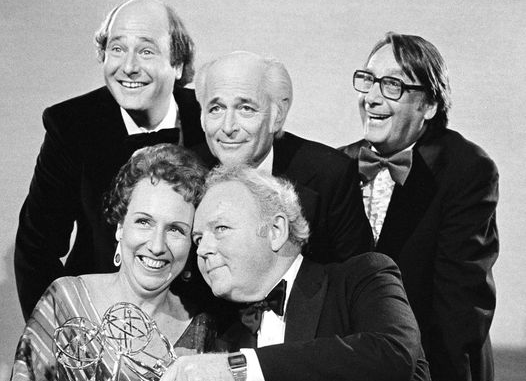
In the early 1970s, my mother wasn’t much of a prime-time TV viewer—her evenings were usually filled with Spanish-language soap operas and the occasional English drama. But then All in the Family burst onto the scene, captivating her attention and transforming our living room into a hub of laughter. I’d never seen her react so joyfully to a show before.
Norman Lear’s groundbreaking series introduced audiences to Carroll O’Connor’s outrageous Archie Bunker, whose unapologetic bigotry tackled issues rarely addressed on television. While All in the Family famously confronted racial tensions between white and Black Americans, it also struck a chord with my mom and other Mexican Americans. Many in her generation carried inherited prejudices—deeply rooted in Mexico’s colonial past—that shaped their views.
My mother, born in El Paso, Texas, was a product of her time and environment, with limited exposure to Black individuals, leading to misconceptions. Archie’s ignorance may have forced her to confront her own biases, even if she didn’t realize it. The tension between Archie and his son-in-law, played by Rob Reiner, echoed my brother’s own efforts to broaden our mother’s worldview when he brought home a Black friend from college, insisting she be welcoming—much to her eventual delight.
But the moment that stood out most was when Sammy Davis Jr. visited the Bunker home. After enduring Archie’s ridiculous remarks about race, Davis requested a photo, and just as the camera clicked, he planted a kiss on Archie’s cheek. The stunned silence that followed was met with uproarious laughter from the studio audience—and from my family, too. It was a moment of pure joy, bridging gaps and sparking conversations.
Thank you, Norman Lear, for creating a show that not only entertained but challenged us to reflect on our own beliefs.
Oscar Garza is the director of the graduate program in Specialized Journalism/Arts & Culture at the USC Annenberg School for Communication and Journalism
